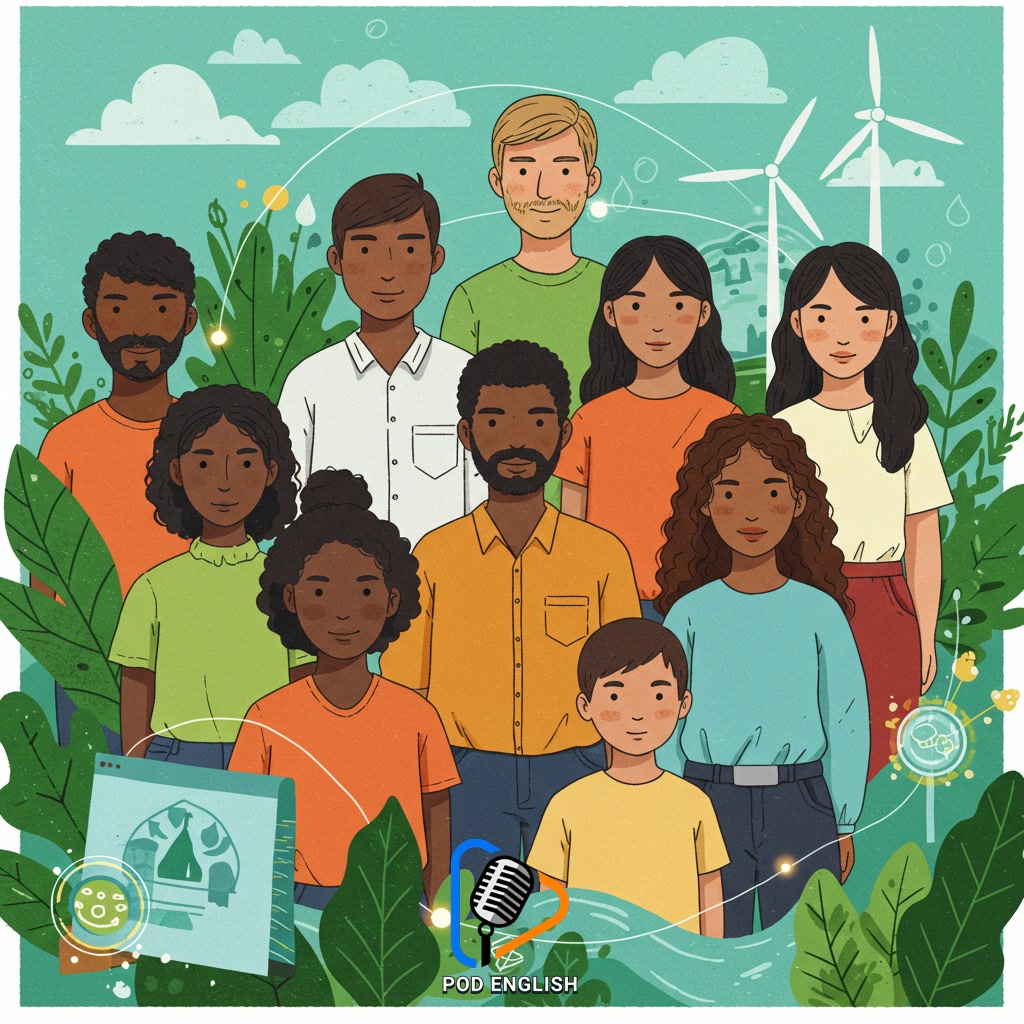Learn English
Unlock SDGs with English Education for Global Change

This content examines the critical role of English education in advancing the Sustainable Development Goals and driving global transformation. It emphasizes how the process of learning english empowers individuals to engage effectively in international dialogue and collaboration. By enhancing communication capabilities, English proficiency serves as a key enabler for addressing complex global challenges. Ultimately, leveraging English education is presented as a vital strategy for unlocking progress towards a more sustainable and equitable world.
Table of Contents
- Section 1: Introduction: Connecting English Education and Global Goals
- Section 2: Understanding the SDGs and the Role of Global Communication
- Section 3: The Importance of Learning English for Accessing Global Knowledge
- Section 4: How English Proficiency Facilitates Action Towards Specific SDGs
- Section 5: Strategies for Leveraging English Education to Drive Global Change
- Section 6: Conclusion: Empowering Individuals and Communities Through English for a Sustainable Future
Section 1: Introduction: Connecting English Education and Global Goals
In today’s interconnected world, addressing global challenges requires understanding and collaboration across borders. The Sustainable Development Goals (SDGs) provide a universal roadmap for a more sustainable and equitable future. This document explores the essential link between learning English and achieving these vital global objectives. English has become a primary language for international communication, enabling people from diverse backgrounds to share ideas, build partnerships, and work together on issues like poverty, climate change, and inequality. By enhancing your English skills, you gain a powerful tool to engage with global issues, participate in international discussions, and contribute meaningfully to the efforts to reach the SDGs.
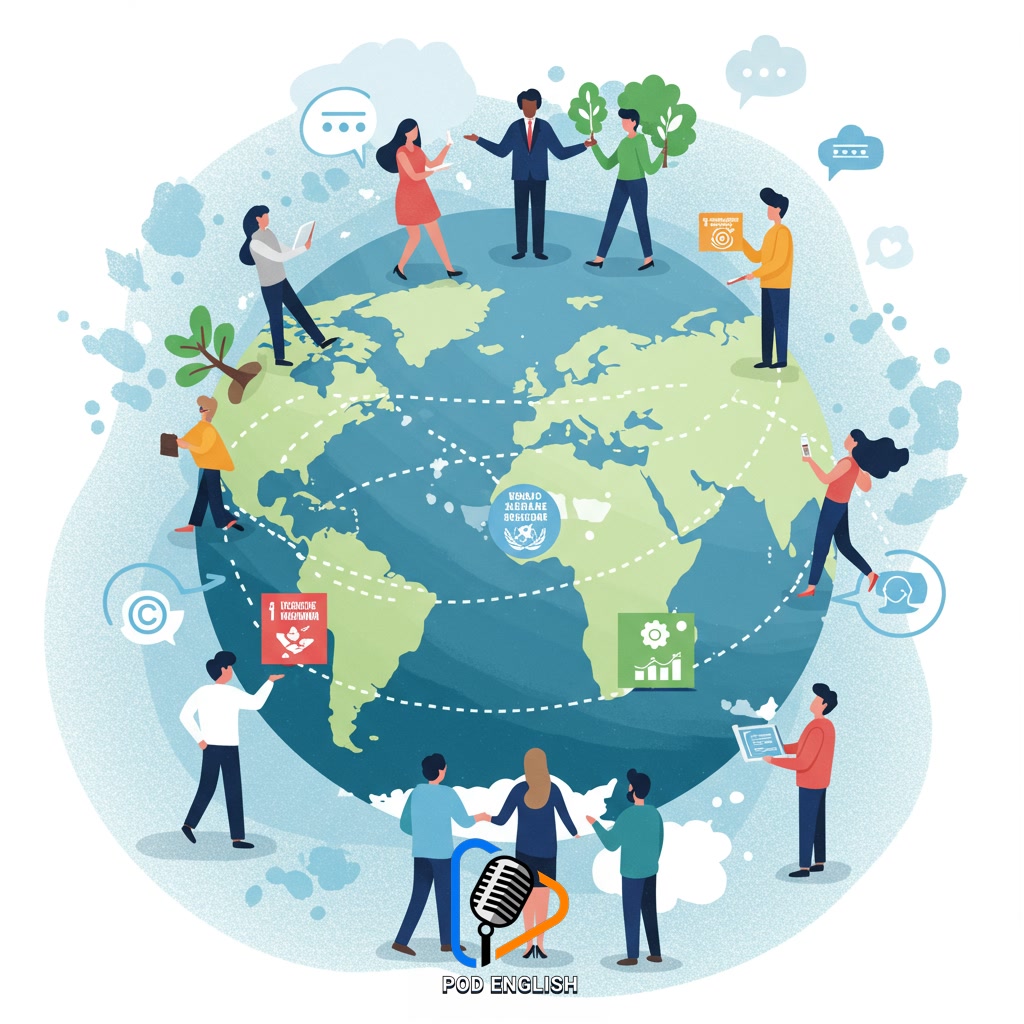
Section 2: Understanding the SDGs and the Role of Global Communication
The Sustainable Development Goals (SDGs) are a set of 17 interconnected goals adopted by the United Nations in 2015, aiming to address global challenges such as poverty, inequality, climate change, environmental degradation, peace, and justice by 2030. Achieving these ambitious goals necessitates unprecedented levels of international cooperation, understanding, and shared effort across borders. Effective global communication is therefore fundamental. It allows people from diverse cultures and nations to share knowledge, discuss complex issues, coordinate actions, and build the partnerships required to work effectively towards these common objectives. Without robust channels for dialogue and information exchange, the path to a sustainable future outlined by the SDGs remains challenging.
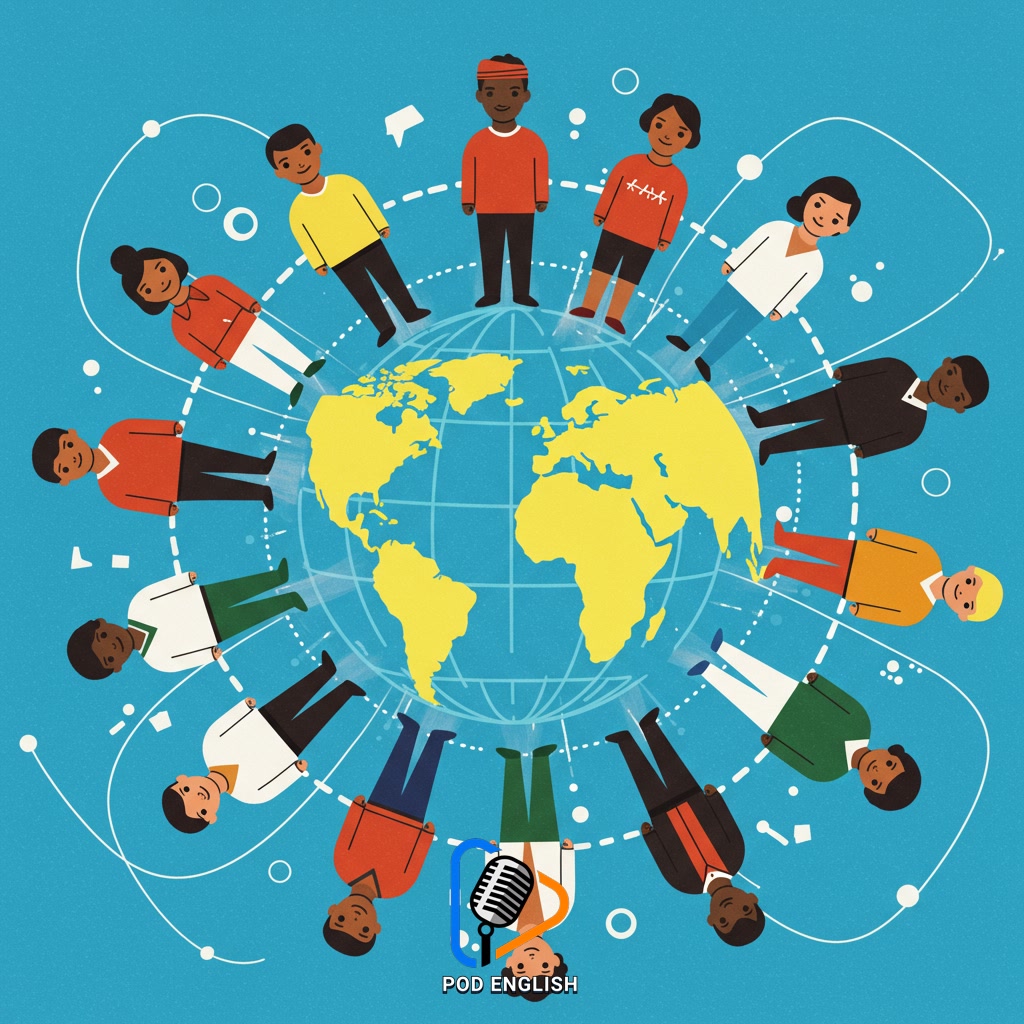
Section 3: The Importance of Learning English for Accessing Global Knowledge
Building upon the understanding that the Sustainable Development Goals address complex global issues, the ability to access comprehensive and current information about these challenges and their potential solutions is paramount. A vast majority of leading research, reports from international organizations, educational resources, and platforms for global dialogue on the SDGs are published and conducted primarily in English. Therefore, learning English is not merely acquiring a language skill; it is gaining a crucial key to unlock a world of knowledge. Proficiency in English enables individuals to read scientific papers on climate change, study economic reports on poverty reduction, participate in online courses about sustainable practices, and engage with global news and perspectives. This direct access to information empowers learners to understand the nuances of the SDGs, evaluate different approaches, and contribute meaningfully to local and global efforts towards sustainability.

Section 4: How English Proficiency Facilitates Action Towards Specific SDGs
Building upon the understanding that the Sustainable Development Goals address complex global issues, the ability to access comprehensive and current information about these challenges and their potential solutions is paramount. English proficiency moves beyond simple access; it empowers individuals to actively engage with this information and, critically, translate understanding into action. By communicating effectively in English, learners can participate in international discussions, share local innovations globally, and collaborate with diverse partners on SDG-related projects. Whether it’s advocating for climate action (SDG 13), promoting gender equality (SDG 5) through global networks, or contributing to health initiatives (SDG 3) by accessing research, English serves as the essential tool for turning awareness into tangible contributions and collective progress towards specific goals.
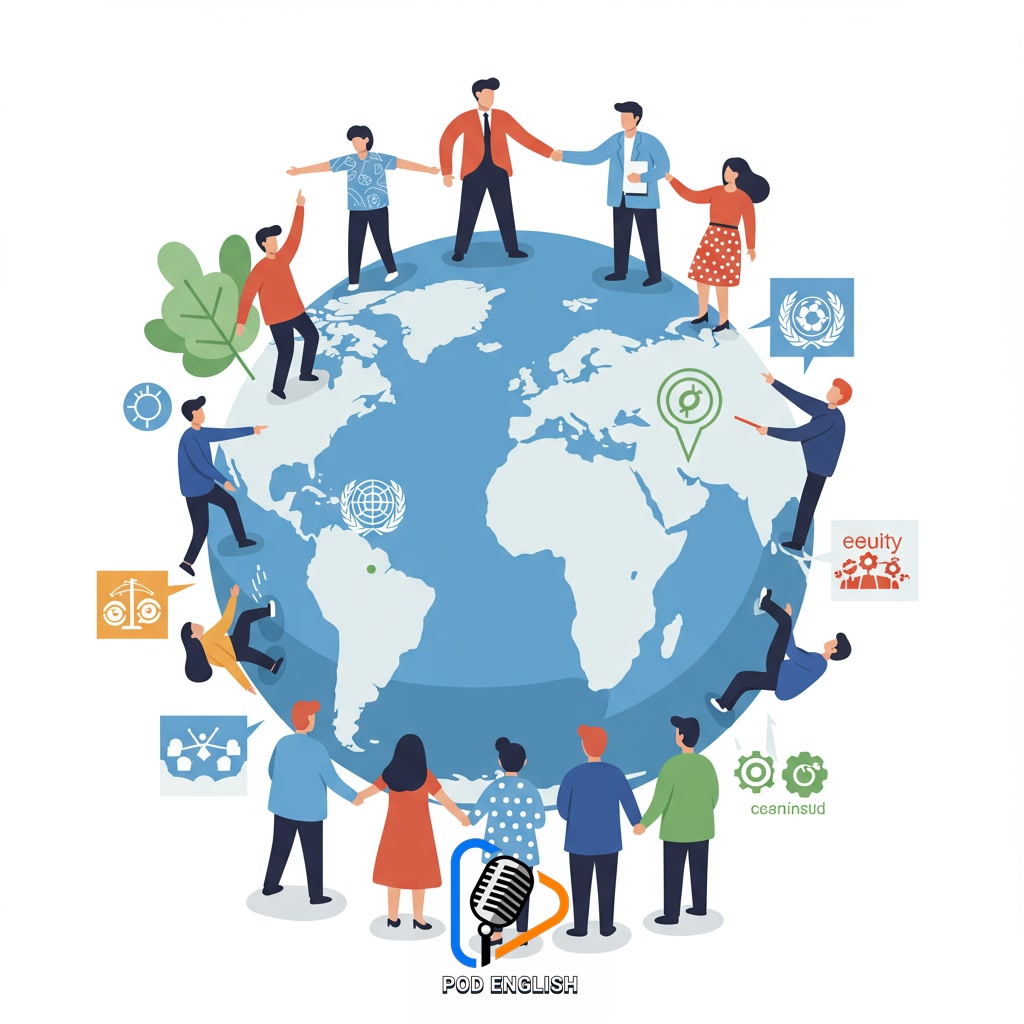
Section 5: Strategies for Leveraging English Education to Drive Global Change
Building upon the understanding that the Sustainable Development Goals address complex global issues, the ability to access comprehensive and current information about these challenges and their potential solutions is crucial. English education provides key strategies for leveraging this access into tangible global change. By mastering English, individuals gain the capacity to directly engage in international dialogue and collaboration, connecting with experts and peers worldwide to share knowledge and coordinate actions. Furthermore, proficiency in English unlocks participation in global forums, conferences, and online platforms where critical discussions about the SDGs take place and solutions are forged. It empowers individuals to advocate for change on a global stage, share local perspectives and innovations, and contribute actively to cross-cultural understanding, making learning English a vital tool for driving progress towards a more sustainable and equitable world.
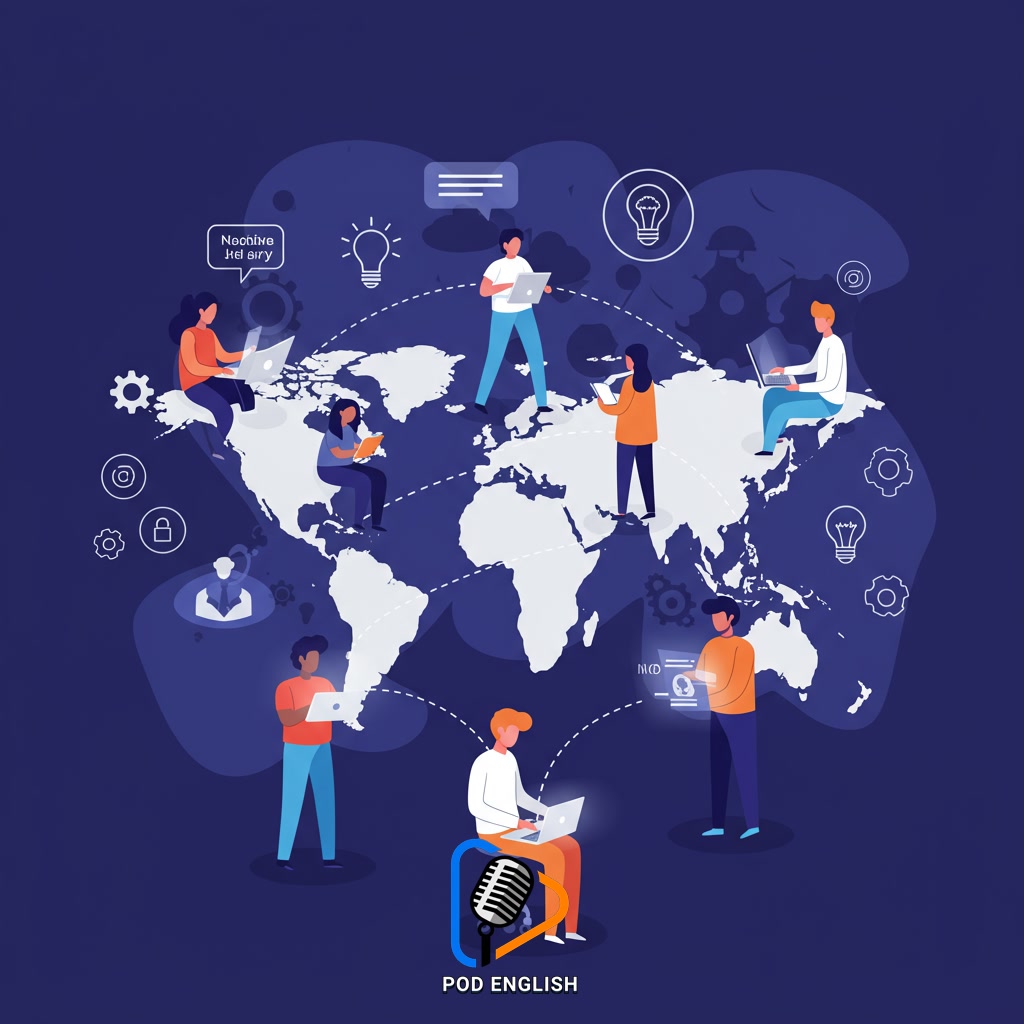
Section 6: Conclusion: Empowering Individuals and Communities Through English for a Sustainable Future
Building upon the understanding that the Sustainable Development Goals address complex global issues, the ability to access comprehensive and current information about these challenges and their potential solutions is paramount. This conclusion reinforces that learning English is fundamentally about empowerment. By gaining proficiency in English, individuals unlock the ability to access a vast global pool of knowledge, connect with diverse perspectives, and participate actively in international discussions about sustainable development. This enhanced communication capability transcends personal growth, enabling individuals to become agents of change within their own communities and contribute to collaborative efforts addressing global issues like climate change, poverty, and inequality. Ultimately, English education serves as a powerful tool for building capacity, fostering understanding, and mobilizing collective action towards a more sustainable and equitable world for everyone.
